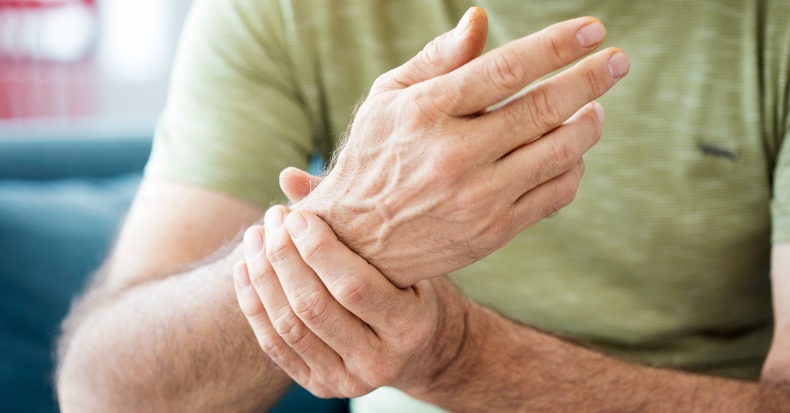Newest Articles
Carpal tunnel syndrome (CTS) is a potentially painful and disabling condition in which the mobility or function of the median nerve is restricted as it passes through the wrist. But the median nerve is not the only nerve that extends into the hand and entrapment of these other nerves can produce symptoms that may be [..]
Whiplash associated disorders (WAD) is a term that describes the cluster of symptoms that can arise from an injury caused by the sudden acceleration and deceleration of the head and neck, most often seen in a motor vehicle collision. Whiplash injuries are classified in four levels: WAD I (no/minimal complaints/injury); WAD II (soft-tissue injury—muscle/tendon and/or [..]
Forward head posture is a common postural fault in which the head’s center of gravity rests forward of the sagittal plane, and it’s typically associated with frequent electronic device and screen use. The further the head sits in front of the shoulders, the harder the muscles in the back of the neck, shoulders, and upper [..]
For decades, the public has been told to avoid whole milk and other foods containing full-fat dairy products because such fare will clog arteries and promote cardiovascular disease. A trip around the grocery store will show many food products labeled as low-fat or fat-free. Even today, the American Heart Association warns us about this on [..]
Low back pain (LBP) is extremely common and will affect at least 80% of us at least once during our lifetime, with many experiencing recurring or prolonged chronic episodes. While chiropractors often utilize manual therapies—like spinal manipulation—to manage low back pain, he or she may also recommend spinal stabilization exercises as part of the treatment [..]
Whip Cracking Mystery Explained
The snapping of a whip occurs in part because the tip of the whip reaches the speed of sound and creates a sonic boom.
“Although the loop travels at one speed, some parts of the whip, including the tip in the final stages of motion, travel twice as fast.”
Professor Alain [..]
Running is a form of exercise that many people utilize to stay in shape, lose weight, and reduce stress, among other reasons. While many avid runners do their best to ignore hip pain while on the road, trail, track, or treadmill, there is a point when their pain forces them to seek care. Let’s discuss [..]
Cholesterol is a type of lipid—or fat—that’s used by the body to build healthy cells. When transported through the blood, cholesterol is generally attached to a protein, creating a lipoprotein. There are two main types of lipoprotein, low-density and high-density, which are also referred to as the bad and good forms of cholesterol, respectively.
Low-density [..]
Occipital neuralgia (OccN) is a somewhat rare form of headache that affects about 3 in 100,000 people a year. How is OccN different than other forms of headache and what treatment approach might a doctor of chiropractic take to manage the condition?
This type of headache is characterized by a sharp, shooting pain that radiates [..]
Neck pain is the second most common reason that patients seek out chiropractic care. While the initial paperwork patients complete will ask about pain and disability in other areas of the body, many might overlook issues like mild or infrequent numbness in the hand because they think that it’s unrelated and not something to be [..]
Whiplash associated disorders (WAD) describes a constellation of symptoms that can arise from the sudden jerk or snap of the head/neck that results in the overstretching of joint capsules, ligaments, muscle tendons, disks, and nerves of the neck and upper back. While it’s estimated that about two million Americans experience a whiplash injury each year, [..]
By some estimates, up to 20% of headaches are caused by a disorder of the cervical spine and its components (bone, disk, and soft tissue) usually accompanied by neck pain. It’s very common for patients with a cervicogenic headache to seek and receive manual therapies—like spinal manipulation and mobilization—from chiropractic care. Spinal manipulation is characterized [..]















